Anger conquers Lebanon
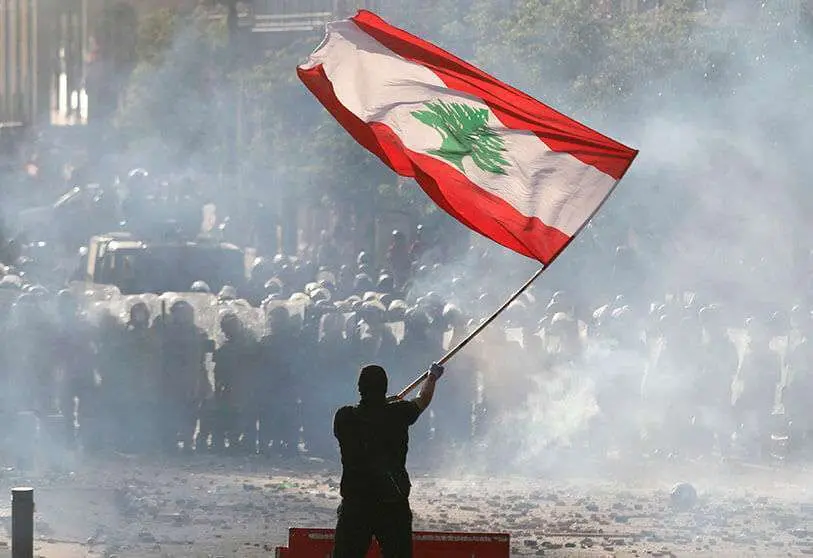
Outrage and anger. The demonstrators have taken over four ministries and the headquarters of the Bankers Association during the demonstration called for Saturday to show their indignation with the Lebanese political class, after the catastrophe caused by last Tuesday's explosion, which left around 158 dead and more than 6,000 injured. Violence has conquered every corner of Beirut this Saturday on the so-called 'Day of Judgement', which has resulted in one policeman being killed and more than 200 injured.
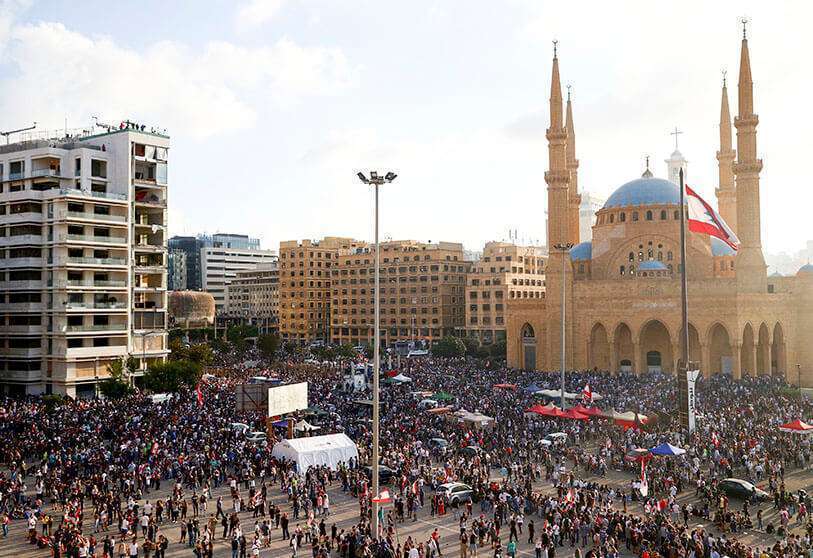
"A member of the Ministry of Interior died in the process of maintaining security while attending to detainees inside the Le Gray Hotel, after being attacked by several murderous rioters, which led to his fall and death". These were the words used by the Lebanese security forces to announce the death of one of his comrades during this demonstration, in which dozens of people broke into the Ministries of Foreign Affairs, Economy, Energy and Environment.
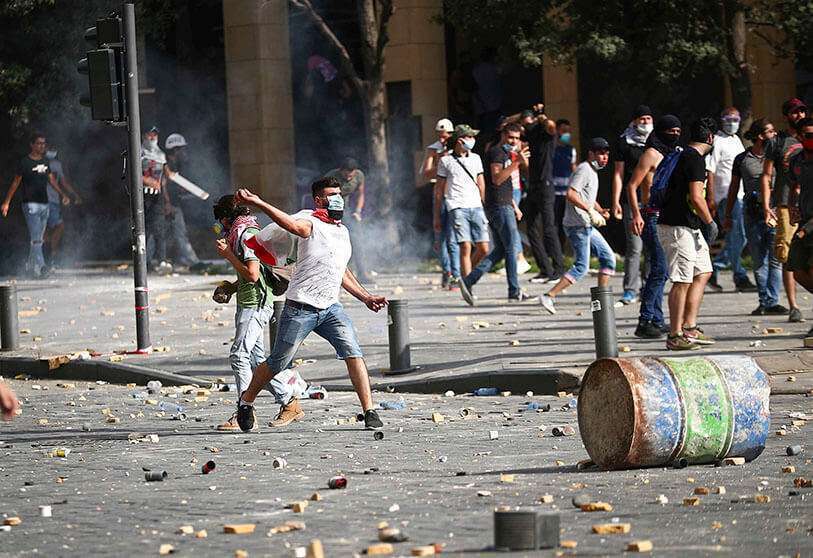
The outlook remains apocalyptic in Lebanon five days after the tragedy. Rescue teams and Lebanese society itself continue to search for missing persons among the rubble or burnt-out cars. However, the roots of this political and social instability lie in the economic and financial crisis in the country. The collapse of the currency, rising inflation, coupled with this explosion and the coronavirus pandemic, have exacerbated political tensions in a nation that is calling for answers. Lebanon - a country of some five million people and home to more than 1.5 million refugees - is one of the most heavily indebted nations in the world. Last Tuesday's tragedy has left between 200,000 and 250,000 people homeless, according to the governorate of the Lebanese capital.
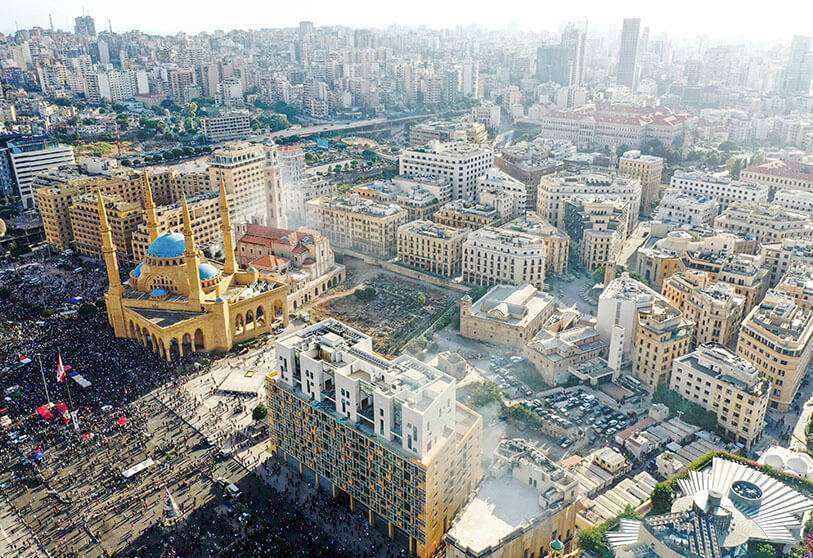
The disaster at the port of Beirut was the spark that ignited a revolution that had been going on for months. The economic crisis has left 75% of Lebanon's inhabitants on the brink of the abyss, 33% unemployed and around 15%, or at least one million people, below the poverty line, according to data produced by the BBC. The spectre of corruption has not gone away in a Lebanon that does not understand how more than 2 700 tonnes of ammonium nitrate have been allowed to be stored without proper measures in the city's port for six years. Trust has been broken and the exchange of accusations or the lack of will to find the origin of this crisis has only made the situation worse.
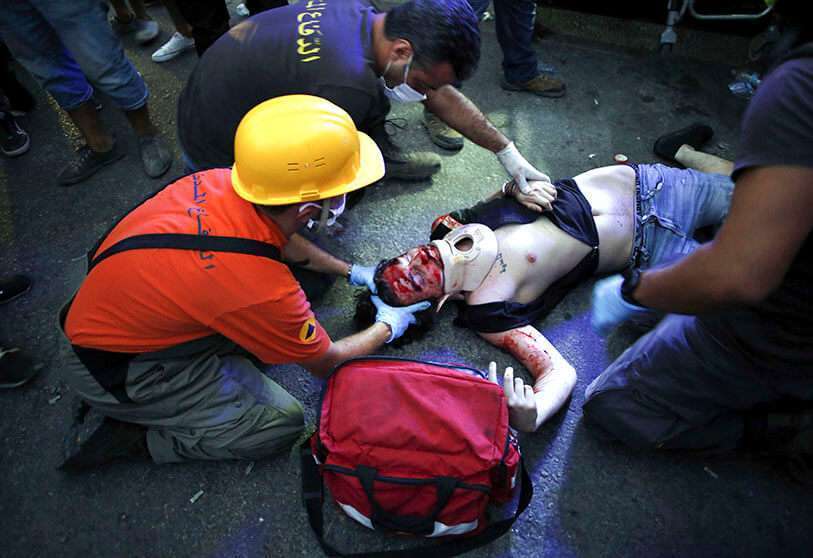
Prime Minister Hasan Diab addressed Lebanese society on Friday afternoon as violence raged through the capital, saying that "accountability will spare no one". "All those responsible for this disaster must be investigated and answer the questions of the people before those of the judiciary," he said. Diab has admitted that "corruption and mismanagement" are primarily responsible for this tragedy. He also explained that when he came to power he assumed responsibility for leading a country that was in a state of financial, political and administrative collapse. "In reality, we can only emerge from the country's structural crisis by holding early parliamentary elections to generate a new political class and a new parliament," he said.

"The magnitude of the disaster is greater than anyone can imagine. There are wounds that will leave their mark forever," said the Lebanese politician, before inviting the country's political formations to agree on the next stage. "They don't have much time. I am ready to take responsibility for two months until they agree. The implementation of structural reforms to save the country must not be hindered," he said.
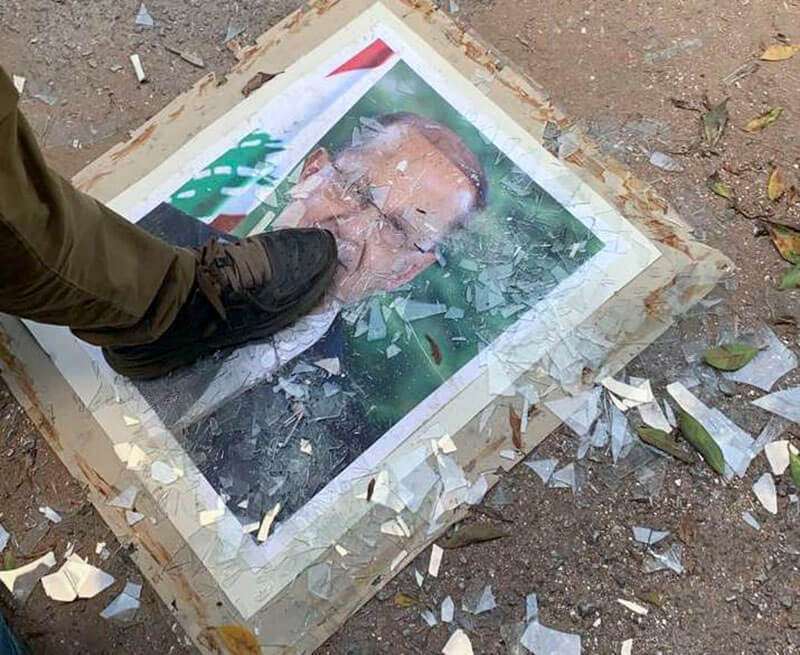
Diab will present a bill for early parliamentary elections to the Council of Ministers on Monday. "Our tragedy is great and dealing with it requires exceptional decisions. I believe that the time has come to be bold in facing the facts as they are," he concluded. However, these words have not been enough to end the tedium that exists in Lebanon, caused by an unprecedented economic crisis and exacerbated by political divisions. Thousands of people have taken to the streets, even with the brooms they have been using to clean up the rubble to find some of the more than 50 people missing, to demand change, in a day of protest that has left 250 people injured, according to the Lebanese Red Cross.
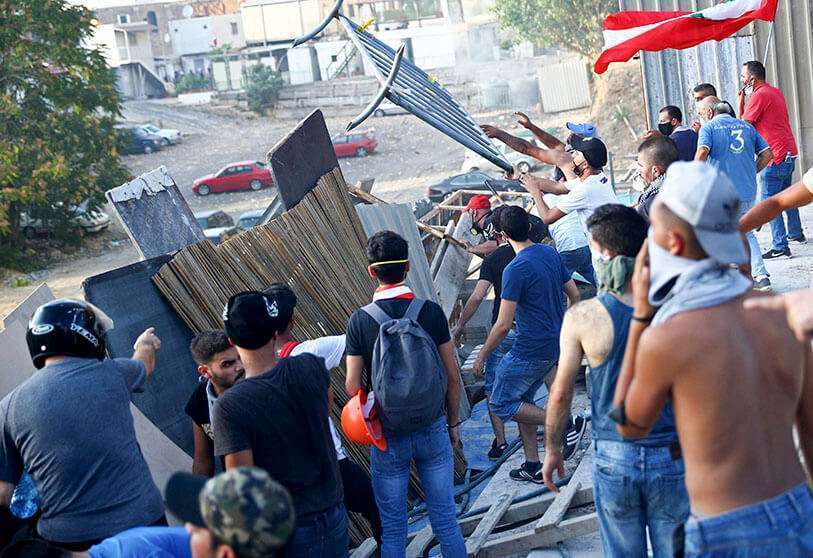
This political crisis has led the MPs of the Kataeb party, a small political formation with three seats in Parliament, to announce their resignation and "come forward with all honest Lebanese for the sake of a sovereign and independent Lebanon". This resignation came after the head of the Lebanese foreign ministry tendered his resignation on Monday, claiming that the executive had failed to manage the crisis and implement the necessary measures to save the country. "I joined this government to work for a boss called Lebanon," Hitti said in a statement, "then I found multiple bosses and contradictory interests in my country. If they do not unite to rescue the Lebanese people, God forbid, the ship will sink with everyone on it," he stressed.
The Minister of Information of Lebanon joined this list of resignations on Sunday. Manal Abdel Samad presented his resignation "in response to public calls for change" and the government's failure to implement reforms, according to several local media.
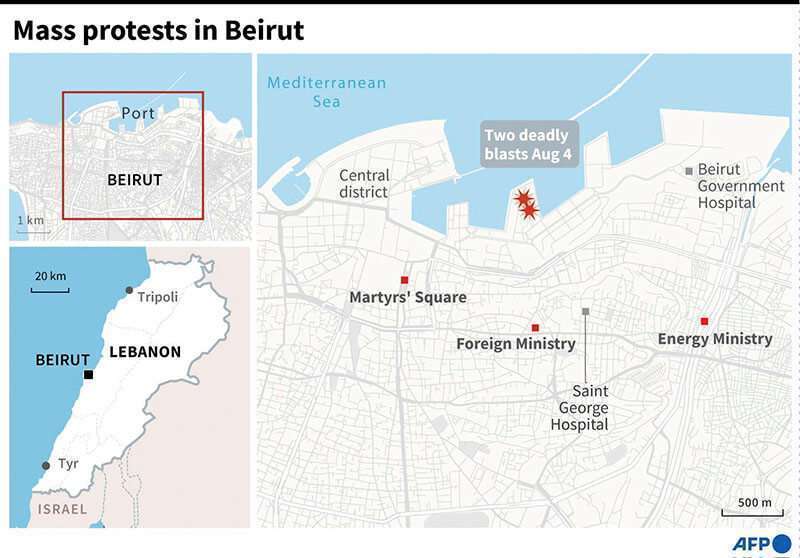
Despite this threefold economic, political and social crisis, the country of cedars has become one of the main receiving nations of Palestinian and Syrian refugees. The United Nations Relief and Works Agency for Palestine Refugees in the Near East (UNRWA) fears that the aftermath of this explosion will hit Lebanon's vulnerable communities hardest. "Palestinian refugees are already among the most vulnerable in the country and many of them are highly dependent on assistance to feed their families," said Claudio Cordone, head of UNRWA in Lebanon.
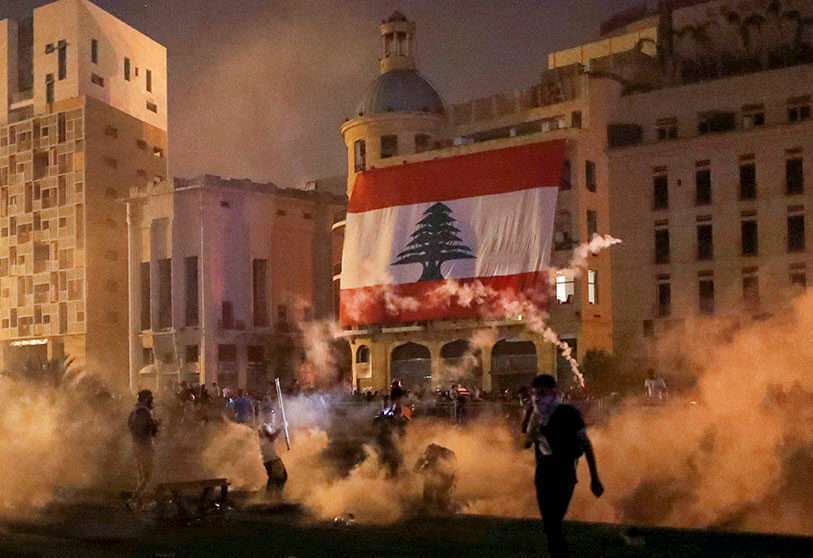
The state led by Prime Minister Hassan Diab is facing its worst economic crisis since the country's civil war between 1975 and 1990. The protests that began in October to end widespread corruption and mismanagement of resources have now turned into violent demonstrations over an economic and legitimacy crisis that has brought Lebanon to the brink, partly exacerbated by measures imposed to stop the spread of the coronavirus. The history of this small nation took a radical turn on 17 October, when the Government announced new fiscal measures. This reform led thousands of people of different religions and social classes in the country to protest, demanding economic and social reforms and changes in the political sphere, which they accused of corruption.
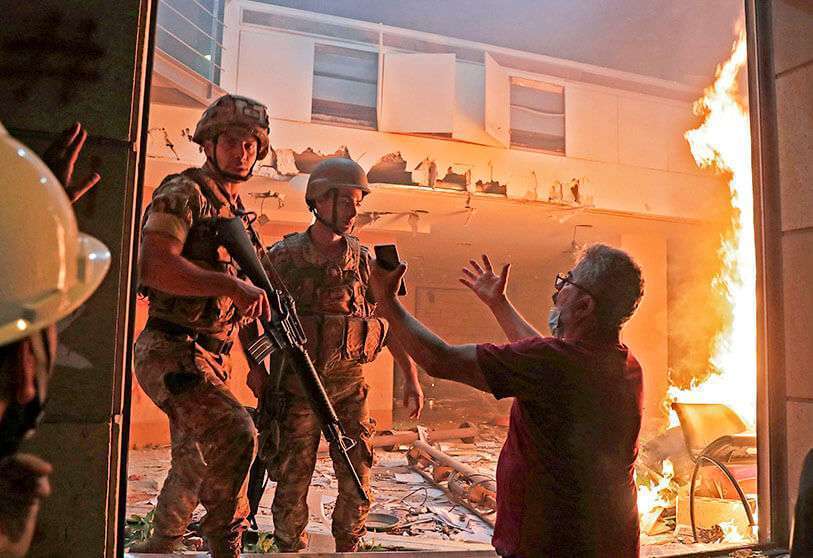
The international community has turned to Lebanon in the wake of this tragedy. This Sunday, France set up an air and sea bridge to transport medical and food aid to this country. The Ministry of Foreign Affairs has informed in an official statement that, in total, eight flights and two sea links are scheduled, which will allow the French nation to move 18 tons of medicines, health equipment and vaccines, as well as 663 tons of food products and supplements to Lebanon.
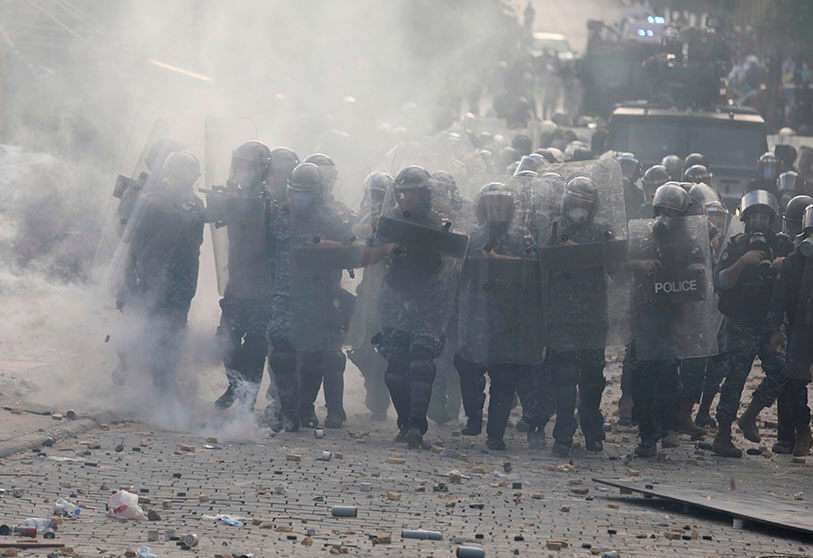
In addition, the Elysée Palace announced that the international donors' conference in support of Beirut and the Lebanese people would take place this Sunday. Among others, the President of the United States, Donald Trump; the British Prime Minister, Boris Johnson; the head of the Spanish Government, Pedro Sánchez; the King of Jordan, Abdalá II, and representatives of China and Russia will participate in it.
According to the Stable Seas organization, the story of this explosion began years ago, specifically in 2013. The organization believes that the neglect of institutions, as well as the various measures implemented by border control led to a long legal battle. The 2,750 tonnes of ammonium nitrate detonated on Tuesday originated from the ship Rhosus, which arrived in the port of Beirut on 23 September 2013 after suffering technical difficulties. The ship, which was sailing under a Moldovan flag, was en route from Georgia to Mozambique, according to its official website. After a series of incidents, it was inspected by port technicians who allegedly found deficiencies and banned it from resuming operations.
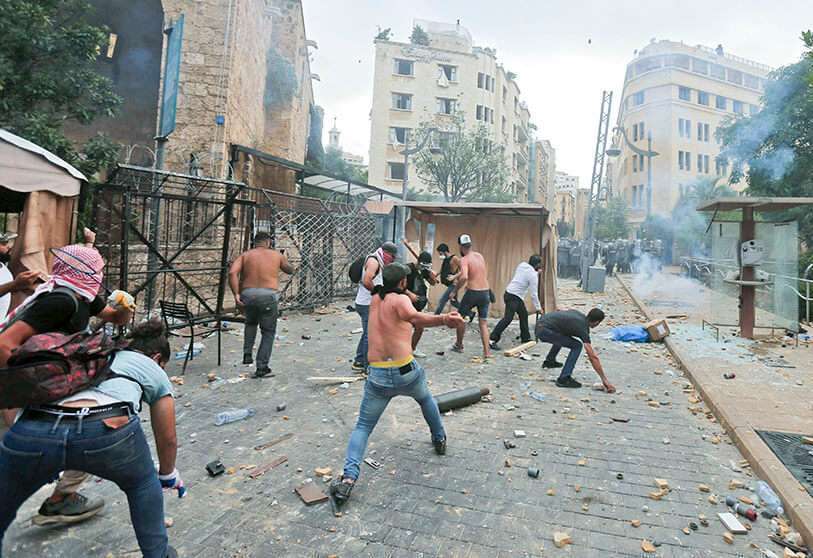
In Beirut, port authorities seized the ship after finding multiple deficiencies, according to a maritime news article published in 2014. A photo from the same year shows some of the 2,750 bags of ammonium nitrate, which seven years later have been photographed in the warehouse that finally exploded, according to the New York Times. The Rhosus was condemned to oblivion and its cargo was stored in the port of Beirut. According to this newspaper, this ship began to sink in February 2018. Two years later, an expert consulted by the NYT who has analyzed an image of February 18, 2018 assures that the ship can be seen in great detail despite being underwater.








